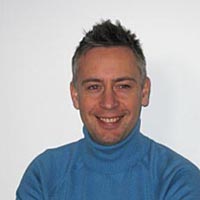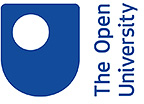You are here
- Home
- Cohort profiles
- Profiles 2013 (4)
Profiles 2013 (4)
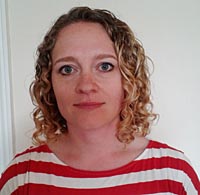 Stella Sims
Stella Sims
Media and Film, University of Sussex
I enrolled on this programme because I am passionate about combining intellectual rigour with creative, accessible communication methods. My current research asserts the importance of exploring the relationship between past and present at an everyday level. I am currently completing a thesis which analyses retro, representations and popular memory of the 1950s in Britain using a range of sources from face-to-face interviews, archive research, and popular cultural analysis. I analyse the contentious politics at the heart of this: the changing contexts of consumerism, class, national identity and gender politics that influence remembering and forgetting in heritage and popular memory.
I am very keen to take research outside of the academy and engage with the public. In 2012 I worked with Brighton Museum and for a 1950s-themed day to commemorate the the Jubilee at Brighton Museum as well as writing for The Guardian on the meanings of retro and the Jubilee. In my spare time I am interested in producing my own documentary films which explore popular memory through topics such as the myth of the ‘dirty weekend’ in Brighton as well as ‘lost’ places such as the New Piccadilly café in Soho, London.
On this programme I look forward to developing my current skills and meeting other researchers and professionals committed to enhancing public knowledge through academic excellence and creativity.
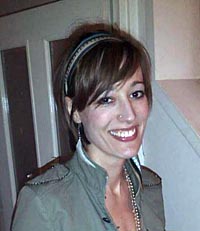 Naomi Stanton
Naomi Stanton
Religious Studies, The Open University
Since completing a combined professional and academic programme for my undergraduate degree, I have been interested in the links between academia and the wider public. As a professional youth worker, I was always frustrated by the apparent disconnection between the theory and critical debate I engaged with at university and the realities of day-to-day practice. This is one of the main reasons I decided to undertake a PhD. My PhD study with the Open University was funded as a collaborative doctoral award and therefore my research into Sunday Schools and Christian youth work has been co-supported by Christian Education (successor organisation to the National Sunday School Union). I have spoken at several practitioner conferences and hope to publish the thesis in a practitioner-friendly format. I am now a lecturer in Youth Work and hope to continue seeking ways to bridge the academia-practice divide and am pleased that the ‘Becoming a Public Intellectual’ training will be supporting me to do just this.
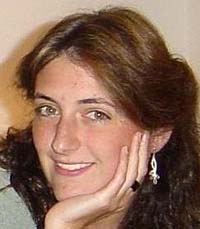 Laura Swift
Laura Swift
Classical Studies, The Open University
I am strongly committed to communicating my subject to wider audiences, and as a student and early career researcher I have been involved in a range of public engagement projects based in museums, schools, theatres and radio. In my new position at The Open University (where I began in April 2012), I have been working in an institution whose purpose is to reach beyond the normal boundaries of academia. This has made me increasingly aware of the huge interest in the ancient world that exists, and the opportunities that academics need to create to tap into this. In an era of funding cuts, and with the humanities often spoken of scornfully by politicians and the media, I believe that we have a responsibility to communicate why our subject still matters, and to offer opportunities for the large number of people who are fascinated by Classics to learn more about it. I am excited about the exceptional range of topics, expert speakers, and professional contacts offered by this scheme. I’m sure that through participating I’ll learn a lot about how to communicate in different media, and what professionals are looking for from academics.
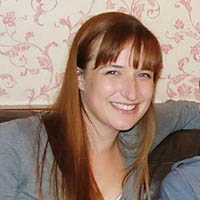 Alice White
Alice White
History, University of Kent
Engaging outside of academia has been vital from my first forays into research, but the work that I've been involved in has come about largely by chance: I enrolled on this programme to become more proactive in creating opportunities to go beyond the university.
I also want to maximise the usefulness, relevance and quality of future efforts. I learnt early in my research that engagement isn’t a one-way process: there are benefits and roles for all parties involved. Working with an archivist processing historical materials from a business really highlighted this for me. I acquired skills in archiving and developed an understanding of how and why the past is important to a business. In exchange, I was able to provide context to the institution's history and highlight previously unknown areas of importance, and to write material for the archivist to use when discussing her work with businesses in future.
Whatever the future holds beyond the PhD, I am certain that it will involve interacting with others, and this programme is a fantastic opportunity to acquire skills and also a critical engagement with just what it means to engage.
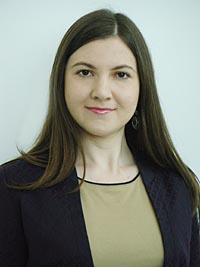 Viktoria Zora
Viktoria Zora
Music, Goldsmiths (University of London)
Being a Doctorate Music student enrolled on a Performance Practice Pathway at Goldsmiths, I consider public engagement as a key element of my current research. My research combines elements of academia and performance and I am very keen on developing further transferable skills that can communicate my research outside academia and increase the impact of Music and Arts.
I am researching the Violin Sonatas Opus 80 and 94bis by Sergei Prokofiev focusing on primary sources (archival manuscripts) and on performance traditions. Main research aims are to investigate the collaborative process between the composer and the violinist David Oistrakh and to examine historical interpretation traditions. A part of my research is an interview project with contemporary eminent musicians who have studied under David Oistrakh. A collaborative working with experts from radio and television would equip me with necessary skills to engage with my interview participants and to document these interviews in a high quality format that could be potentially used in a documentary film. I feel that academia is undergoing changes due to new social and financial expectations and I think that current researchers need new skills to associate with media and to find creative ways of dissemination.
